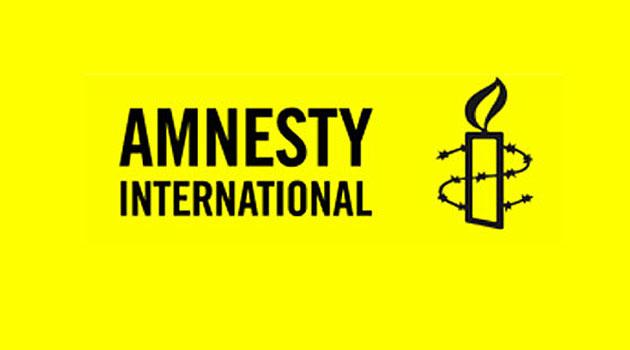AI petition asking EU to halt discrimination of Roma gets almost 100 000 signatures

Almost 100 000 people from around the world have signed a petition by Amnesty International (AI) supporting the rights of Romani people in the European Union. The AI document calls on the European Commission to halt discrimination against Romani people in Europe and force the Member States to uphold EU anti-discrimination law. The Commission is preparing to publish a report on the integration of Roma today.
Promotion of anti-discrimination
"EU action on this issue is long overdue," said Nicolas Beger, Director of Amnesty International’s European Institutions Office. "The many forced evictions of Romani people, their segregation in housing and education and the inadequate reaction to hate crimes against them aren’t isolated incidents but the product of widespread, systemic discrimination. The Union can already force its Member States to uphold its anti-discrimination laws, but the Commission has been reluctant to make this happen. Now, 93,165 people are demanding that they do so."
"The European Union must immediately adopt measures and start applying sanctions to those Member States that fail on the question of eliminating discrimination and violence against Romani people," AI Program Director for Europe and Central Asia John Dalhuisen said at the start of the campaign. "Such practices contravene EU law and the principles of democracy, freedom, and respect for human rights on which that institution was founded."
Life far below the poverty line
The signatures under the call to action, which is addressed to EU Justice Commissioner Viviane Reding, were collected by AI as part of its "Human rights here, Roma rights now" campaign. The Roma are the EU’s largest ethnic minority, and most of them live far below the national average on almost all standard of living indicators.
Disturbing facts about the EU and Romani people
Eight out of 10 Romani people live on the border of poverty. Three-quarters of Europeans surveyed have admitted that Romani people as a group suffer a high risk of discrimination.
Most Europeans (53 %) believe all of society could profit from improved integration of Romani people. However, a survey taken in 2012 also claimed that 34 % of Europeans said people in their particular country would "dislike" it (and 28 % would "somewhat dislike" it) if their children had Romani schoolmates.
In Bulgaria, the Czech Republic, Hungary and Slovakia, more than 120 serious violent assaults on Romani people and their property were reported for the period between January 2008 and July 2012, including incidents involving Molotov cocktail attacks, shootings, and stabbings. State authorities, including police, have failed to either prevent such cases or to investigate them once they have occurred. News server Romea.cz has reported that the Czech Police have never launched investigations into some cases where Romani people became the victims of violence.
Forced evictions of Romani people are still a common practice in many EU states, such as France, Italy and Romania. The education of Romani people is also segregated, primarily in the Czech Republic, Greece and Slovakia, which completely violates both those countries’ own laws and EU legislation banning racial discrimination.
The Czech Republic
In the Czech Republic an estimated 200 000 Romani people comprise 1.9 % of the country’s population. About one-third of them (60 000 – 80 000) live in roughly 330 discrete localities where unemployment is more than 90 %.
Romani children represent 32 % of the pupils attending schools for children with "light mental disability", where a simplified curriculum is used. Between January 2008 and July 2012, violent assaults caused the deaths of at least five Romani people in the Czech Republic and injuries to 22 Romani people, including three juveniles.
In the Czech Republic, AI’s campaign has drawn attention to the fact that the Czech authorities and institutions use discriminatory mechanisms very similar to those that complicate the situation of the Romani minority in other countries (Hungary, Italy, Romania, Slovakia, etc.) "The campaign should help spark discussion of the situation of the Romani minority in the Czech Republic, move it from the level of prejudiced debates to a higher level, and increase awareness of the fact that various states in Europe use similar discrimination mechanisms," said Mark Martin, director of the Czech section of Amnesty International.
EU Equality Directives
In the year 2000 the European Union adopted a directive on racial equality that bans discrimination based on race or ethnicity in access to goods and services, in education, in health care, in housing, and in the workplace. The EU Charter of Fundamental Rights, which took effect in 2009, also bans discrimination and guarantees the right to education, employment, housing and social support.
The Commission is authorized to intervene against any of the 27 Member States that violate EU law or the Charter. To this day, however, such intervention has never happened in connection with discrimination against Romani people or any other ethnic minority.
"The Commission has the opportunity to permanently change the lives of discriminated, overlooked communities in Europe, including Romani people. To date, however, the Commission has unfortunately proceeded very hesitantly against states that violate Romani people’s human rights," complains Dalhuisen. "What we see is a Commission that prefers to apply sanctions over technical questions – for example, over taxes or transportation – but not over matters that are vitally important to millions of people, such as forced evictions, hate attacks, and segregation. The EU has received the Nobel Peace Prize. That means it has the power to end the discriminatory practices that are common in many of its Member States. That power must be used."